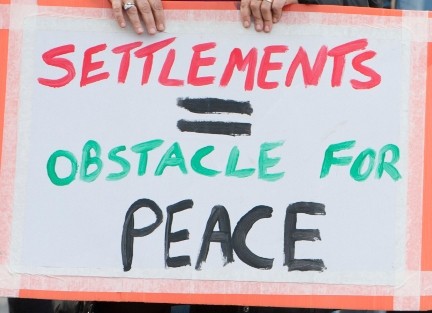Open discussion is an important aspect of any community. When the AJDS launched its ‘Don’t Buy from the Settlements’ Campaign in Pesach this year, we did so with the aim of being part of an ongoing, world-wide discussion about the ways that everyone who cares about Israel/Palestine can be a part of helping to shape a new future for that part of the world and its inhabitants. While many people from all sorts of communities have supported and taken part in the campaign, the campaign has been criticised by some. This is inevitable in any political campaign.
But there has also been a lot of confusion about what the campaign is and what it means. In particular, a lot of people have been confused about what distinguishes this campaign from BDS, and there are many within the Jewish communities in Melbourne who have criticised the campaign because of that.
The different members of the AJDS executive have had a range of experiences since the campaign was launched, and have many opinions regarding the different issues involved.
In particular, there are a variety of opinions within the AJDS Executive and former exec about the Palestinian-led ‘Boycott, Divestment and Sanctions’ movement – more commonly referred to as BDS. This coalesces around questions of what BDS is and what its relationship to the Zionist community and Israel is, as well as how this positions relations between Israelis and Palestinians. While we have these differences, AJDS’s ‘Don’t Buy from the Settlements’ Campaign emerged after several years of internal discussion which was informed by, but quite separate to, anything proposed by what is known as the BDS movement.
While we have these differences about how to consider the BDS movement, we believe it is important to share them. This is because we recognise that many of the issues raised by proponents of BDS are part of a progressive concern for justice, peace and reconciliation. However there are inevitably some differences that are felt by some of us, and these need to be explained. In fact, these various viewpoints also overlap. Thus, we also make it clear that there is no ‘split’ in AJDS; there are simply different opinions on a complex ‘movement’. This is a movement which is unfortunately often seen as monolithic and universally evil by some members of the Zionist Jewish community and its allies, but is recognised as quite heterogeneous by many of those outside of it. This difference in perceptions about the BDS, the volatile nature of the relationship between Israel and Palestine, and the existence of diverse political opinions are some of the reasons why it has been so difficult to develop any consensus position in AJDS, and why we recognise that consensus positions on this issue are not necessary.
There is nothing more important than being able to speak and talk openly about our differences, rather than be subject to the strident and dishonest criticism which comes from some quarters in the Jewish community. The recent condemnation of AJDS by affiliates of the JCCV is an unfortunate example of this problem.
We hope that you will read the pieces that come from four members of our executive – Jordy Silverstein, Larry Stillman, Dennis Martin and Jemima Light – in the open spirit in which they were intended: to tease out some of the difficulties and the ambivalences, as well as some of the certainties, in grappling with these issues.
The AJDS and our ‘Don’t Buy from the Settlements’ Campaign – An Introduction

